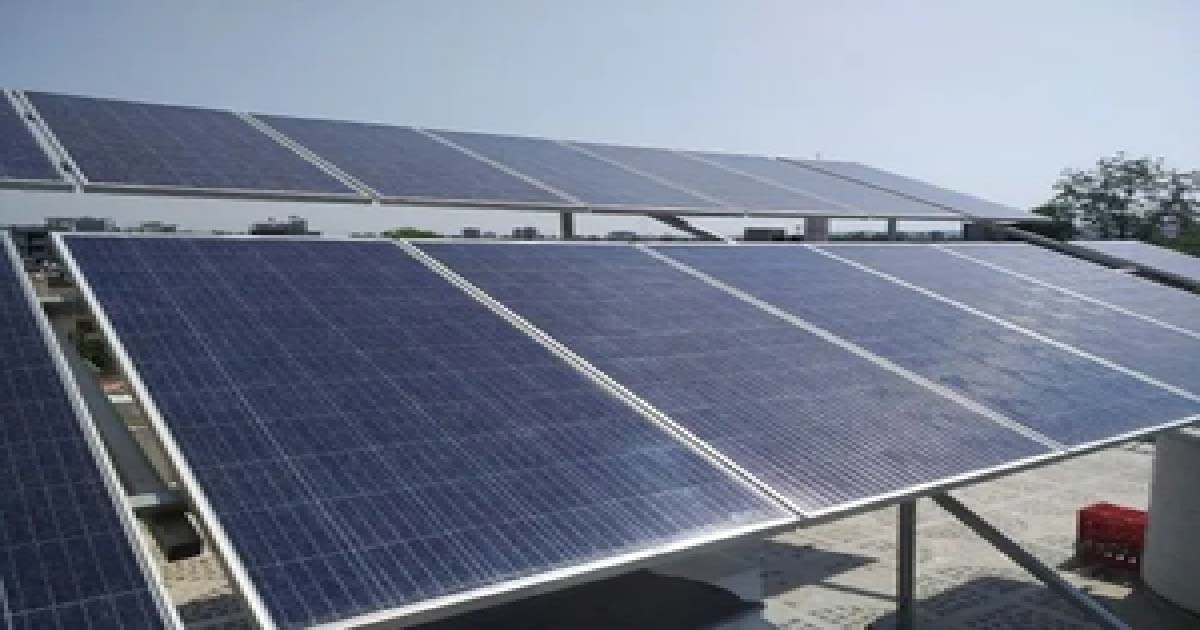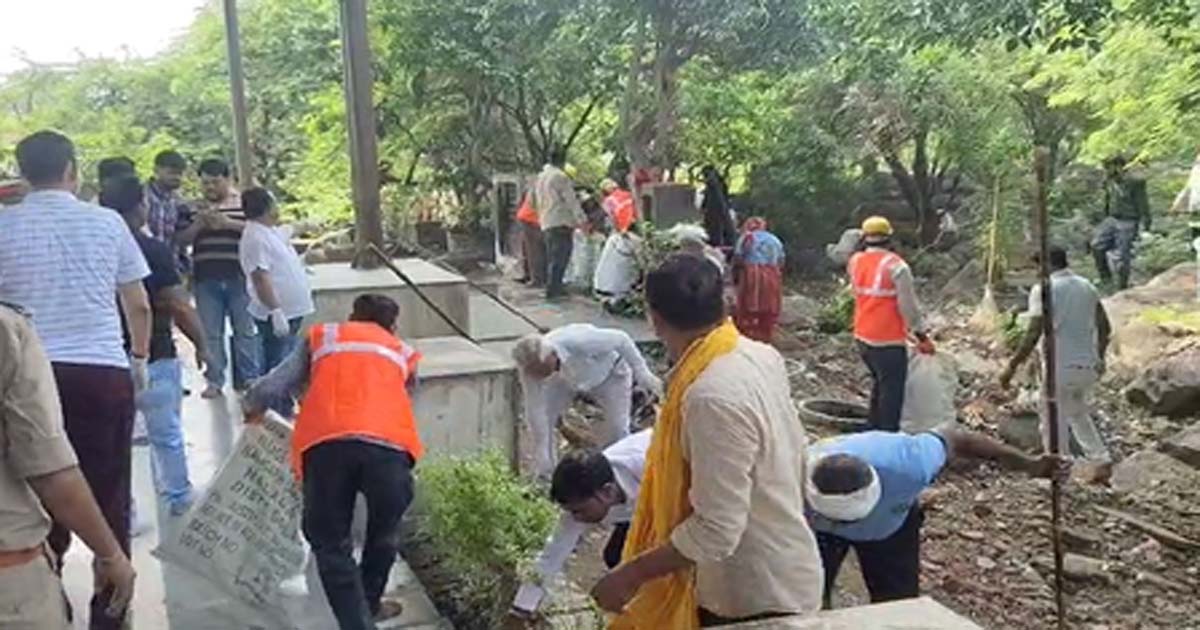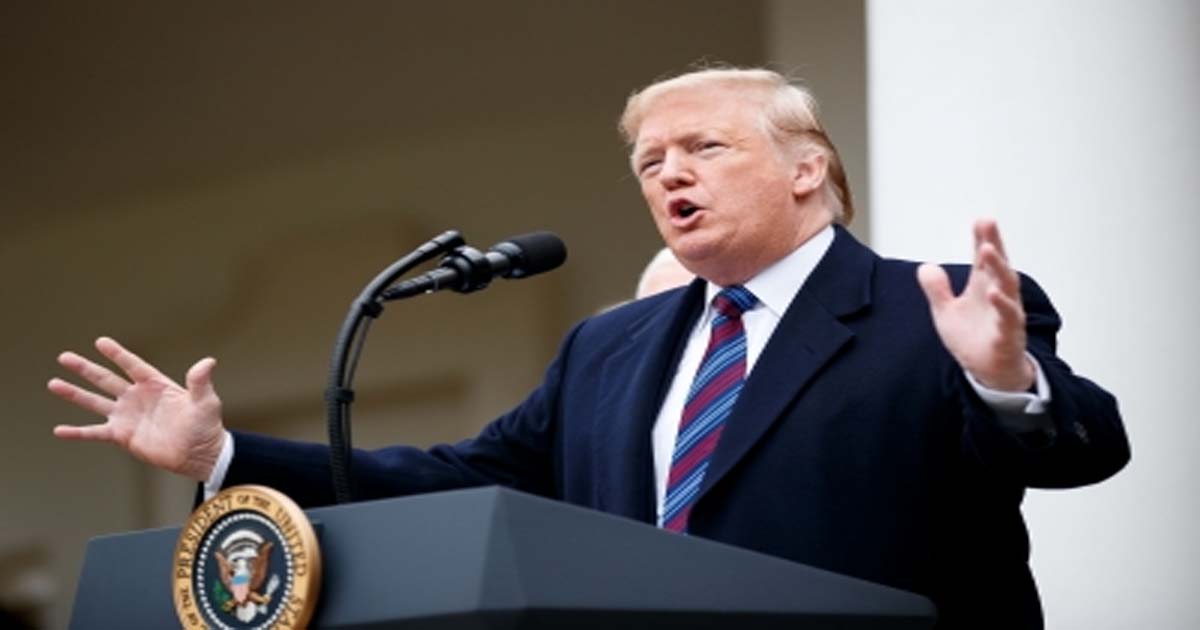Business
India’s rooftop solar energy capacity to reach 25-30 GW by FY27

New Delhi, April 15: India’s rooftop solar energy capacity is projected to surge from 17 GW to an estimated 25–30 GW between FY25 and FY27, a report showed on Tuesday.
The expansion is driven by India’s broader energy transition goals, with solar power emerging as a central pillar in the country’s clean energy roadmap.
With a total renewable capacity of 220 GW as of FY25 and a national target of 300 GW solar capacity by 2030, rooftop solar, particularly in the commercial and industrial (C&I) segment, is expected to play a pivotal role in this growth, according to the report by CareEdge Ratings.
As of FY25, India’s rooftop solar capacity stood at 17.02 GW, and increasing awareness among businesses about reducing operating costs and meeting sustainability targets is fuelling adoption.
Government incentives, reducing technology costs, and policy support such as net metering and PLI schemes are expected to further accelerate deployment.
Overall, the FY27 projection underscores a transformative phase for India’s solar industry, setting the foundation for sustained expansion through the end of the decade.
“Rooftop solar installations in India have gained momentum. With the growing C&I demand backed by an improving policy ecosystem, we expect the market to reach nearly 25-30 GW over the next two years,” said Tanvi Shah, Director at CareEdge Advisory and Research.
The PM Surya Ghar Muft Bijli Yojana, aimed at installing rooftop solar in 1 crore households with subsidies up to Rs 78,000, is expected to provide strong support to residential adoption. The scheme not only supports low and middle-income households by reducing their electricity bills but also aims to create nearly 17 lakh jobs, boosting the solar value chain.
Recently, rooftop solar initiative has achieved a historic milestone with 10 lakh installations as of March 10, 2025.
Gujarat remains a leader due to its progressive “Surya Gujarat” programme, while Maharashtra has seen strong commercial and industrial demand, especially from MSMEs and urban commercial hubs.
“The rooftop solar segment which currently holds around 20 per cent share of India’s solar mix is gaining importance due to its distributed nature and direct consumer engagement. This is despite utility-scale solar being the dominant contributor,” said the report.
The growth of rooftop solar market in India has witnessed accelerated growth in the recent years. With strong policy backing, falling costs, and growing consumer interest, it is set to emerge as a key pillar in India’s renewable energy transition, said the report.
National
Police in Srinagar attach property worth Rs 1.5 crore under UAPA

Srinagar, July 5: Continuing its drive against terrorism, Jammu and Kashmir (J&K) Police in Srinagar district on Saturday attached property worth Rs 1.5 crore under the Unlawful Activities Prevention Act (UAPA).
A police statement said on Saturday, “In a decisive move against the terror ecosystem and to dismantle its supporting infrastructure, Srinagar Police has attached a residential property — comprising 8 marlas and 202 sq. ft. of land along with the building structure— estimated to be worth approximately Rs 1.5 crore.
“The property, located at Mir Masjid Mohalla, Shallabagh Khanyar, and falling under Survey Nos. 3674/1147 and 3677/1148, is recorded in the name of Mohammad Yousuf Shah son of Hafiz Waliuallah Shah.”
The police statement added, “It is currently in the possession of Masood Hussain Shah son of Mohammad Yousuf Shah. The attachment has been carried out under the relevant provisions of the Unlawful Activities (Prevention) Act (UAPA) in connection with FIR No. 48/2024 under Sections 109 of the Bharatiya Nyaya Sanhita (BNS), 7/27 of the Indian Arms Act, and Sections 16, 18, 19, 20, and 39 of the UAP Act, registered at Police Station Khanyar.
“Investigations have established that the property was acquired through illegal proceeds linked to terrorist activities. Acting under Section 25 of the UAP Act, the immovable property has been formally seized and attached following due legal procedure.
“Through this attachment notice, the owner is prohibited from selling, leasing, or transferring the said property in any manner. This action is part of the sustained campaign of Srinagar Police to dismantle the terror ecosystem in a systematic manner.
“By targeting and crippling the financial networks of terrorist organisations, Jammu & Kashmir Police aims to curb acts detrimental to the security and integrity of the nation. Srinagar Police reiterates its unwavering commitment to eradicating terrorism and safeguarding public peace.”
National
World-famous Mudiya Mela in Govardhan from tomorrow, cleanliness campaign launched

Govardhan (UP), July 5: As the world-famous Mudiya Mela will kick off in Uttar Pradesh’s Govardhan on Sunday, authorities have launched a cleanliness campaign.
Over 2 crore pilgrims are expected to reach Govardhan for the mela and perform Parikrama.
The cleanliness campaign, led by District Magistrate C.P. Singh, started on Saturday and focussed on cleanliness in key areas, including Parikrama Marg, Daanghati temple, and Giriraj ji.
DM Singh swept the land near the Govardhan temple, spreading the message of cleanliness.
As per the directions of the Uttar Pradesh government, efforts are being made to provide pilgrims with proper facilities and clean surroundings, he said.
The District Magistrate said people use polythene bags and indulge in littering as they don’t care about cleanliness, but now, as prior warnings have been given, strict action will be taken against violators.
The DM pointed out that maintaining cleanliness in the area was the responsibility of the temple management, but as it failed, “our team and locals of Govardhan are carrying out the cleanliness drive.”
Highlighting the importance of cleanliness, DM Singh said, “We aim to clean the entire Parikrama marg.”
He also shared that notices have been issued to those shops which have encroached on public land. The cleanliness campaign was made successful with the efforts of Govardhan SDM Neelam Srivastava, Govardhan Tehsil and Panchayat.
For the unversed, Mudiya Mela is observed in remembrance of Sanatan Goswami, the principal disciple of Lord Chaitanya Mahaprabhu.
Legends have it that when Sanatan Goswami passed away, his disciples did parikrama of the Govardhan after tonsuring their heads. Since then, this tradition has been followed.
Notably, the 468-year-old tradition continues to draw a sea of devotees.
The devotees perform a 21-km-long Parikrama of Govardhan.
The belief with the yatra is that it bestows peace and prosperity on the devotees.
Business
12 nations to get US tariff letters on Monday, says Trump

New Delhi/Washington, July 5: US President Donald Trump has signed tariff letters on exports from 12 countries, which are expected to be sent out on July 7 (Monday).
Speaking to the media aboard Air Force One, the US President said the names of the countries which will receive the letters would only be revealed on Monday.
“I signed some letters and they’ll go out on Monday, probably 12. Different amounts of money, different amounts of tariffs,” he told reporters.
“The letters are better. It is much easier to send a letter,” Trump added.
Trump has suggested that the reciprocal tariffs could go even higher, potentially reaching 70 per cent for some countries, and take effect from August 1.
The US President in April unveiled a base tariff of 10 per cent on most goods entering the country, along with higher rates for certain countries, including China. Those elevated tariffs were later suspended till July 9.
Washington has concluded trade agreements with two countries – the United Kingdom and Vietnam.
Meanwhile, India’s high-level official delegation, led by chief negotiator Rajesh Agrawal, has returned from Washington without reaching a final agreement with US officials on the sensitive issue of trade in agricultural and dairy products that the US is pushing for.
However, there is still a glimmer of hope that an interim bilateral trade agreement may be reached at the highest political level in the two countries before the July 9 deadline.
The Indian team was in Washington for negotiations on an interim trade agreement with the US from June 26 – July 2.
According to Commerce Minister Piyush Goyal, India will not hurry into signing a free trade agreement under pressure from any deadline.
Speaking on the sidelines of an event in the national capital, Minister Goyal emphasised that India is ready to make trade deals in the national interest but it “never negotiates trade deals with a deadline”.
The US is seeking broader market access for its agricultural and dairy products, which is a major hurdle, as for India, this is a livelihood issue for the country’s small farmers, and hence, is considered a sensitive area.
While India is looking to secure an exemption from President Trump’s 26 per cent tariffs by concluding an interim deal before July 9, it is also pushing for significant tariff concessions for its labour-intensive exports such as textiles, leather and footwear.
-

 Crime3 years ago
Crime3 years agoClass 10 student jumps to death in Jaipur
-

 Maharashtra9 months ago
Maharashtra9 months agoMumbai Local Train Update: Central Railway’s New Timetable Comes Into Effect; Check Full List Of Revised Timings & Stations
-

 Maharashtra9 months ago
Maharashtra9 months agoMumbai To Go Toll-Free Tonight! Maharashtra Govt Announces Complete Toll Waiver For Light Motor Vehicles At All 5 Entry Points Of City
-

 Maharashtra9 months ago
Maharashtra9 months agoFalse photo of Imtiaz Jaleel’s rally, exposing the fooling conspiracy
-

 Crime9 months ago
Crime9 months agoBaba Siddique Murder: Mumbai Police Unable To Get Lawrence Bishnoi Custody Due To Home Ministry Order, Says Report
-

 National News9 months ago
National News9 months agoMinistry of Railways rolls out Special Drive 4.0 with focus on digitisation, cleanliness, inclusiveness and grievance redressal
-

 Maharashtra8 months ago
Maharashtra8 months agoMaharashtra Elections 2024: Mumbai Metro & BEST Services Extended Till Midnight On Voting Day
-

 National News10 months ago
National News10 months agoJ&K: 4 Jawans Killed, 28 Injured After Bus Carrying BSF Personnel For Poll Duty Falls Into Gorge In Budgam; Terrifying Visuals Surface












